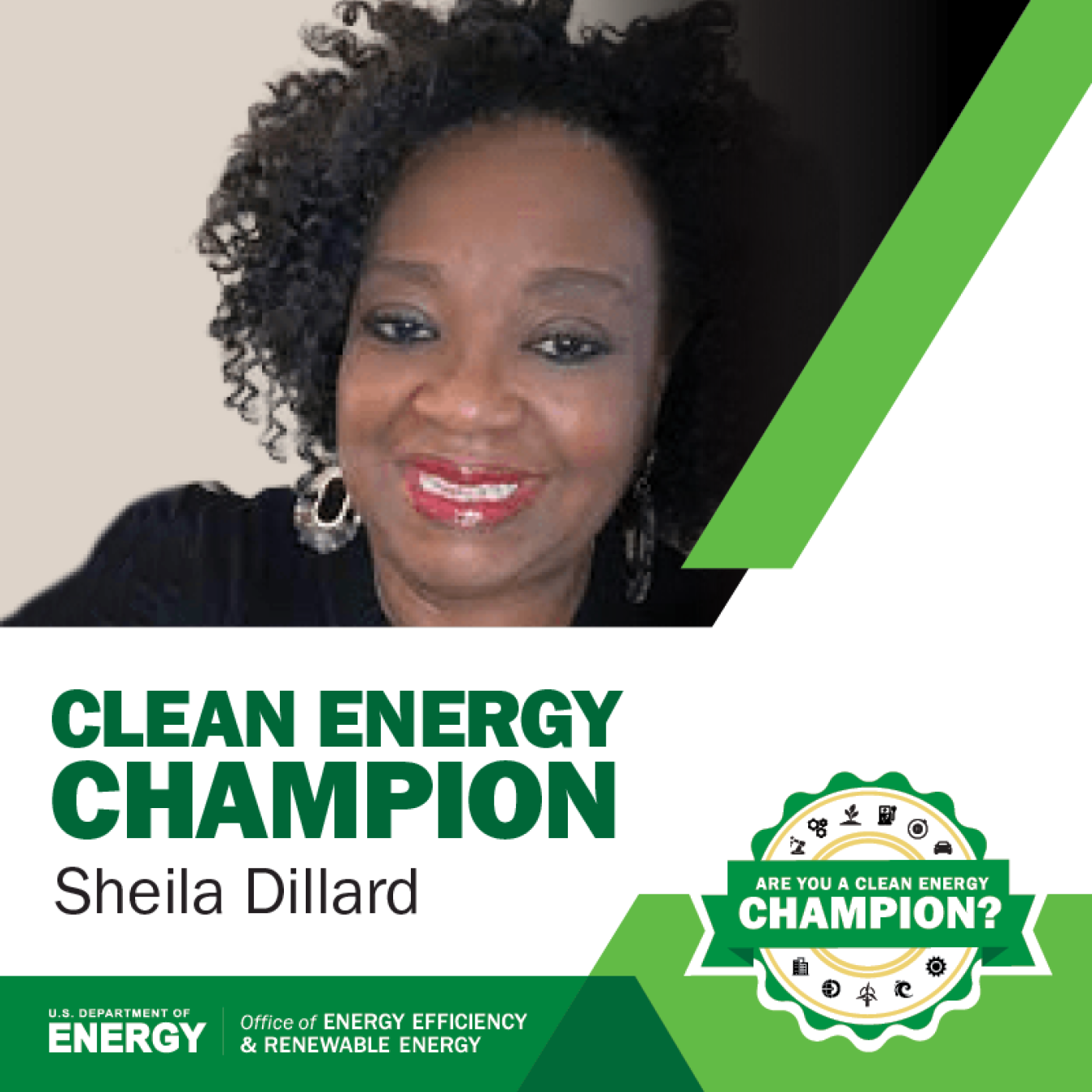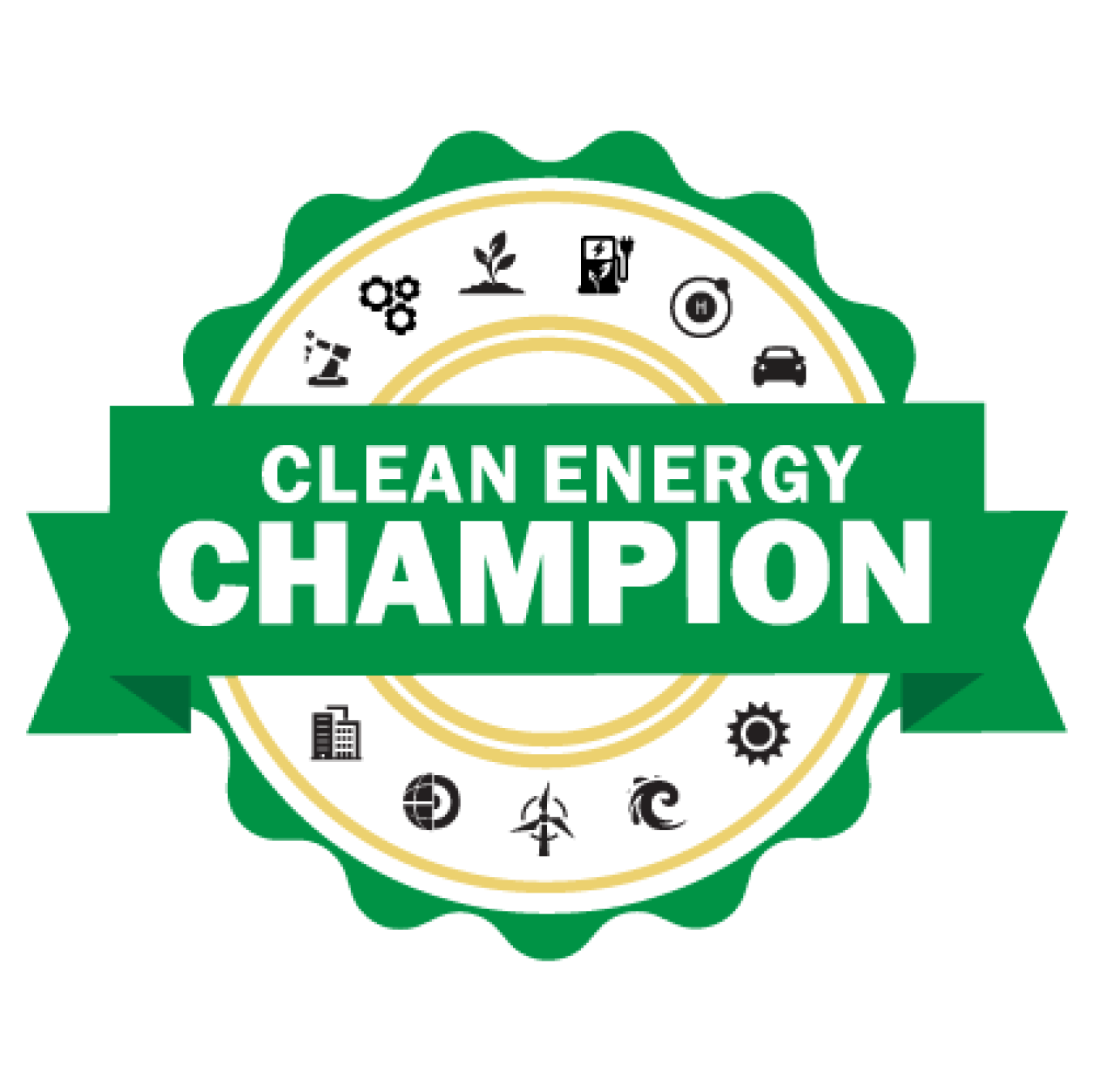Thinking she would work in legal research, Sheila Dillard found herself being professionally rewarded for her communications and outreach abilities. Learn more about her 27-year journey that took her from buildings to bioenergy.
Office of Energy Efficiency & Renewable Energy
April 27, 2022This is the fifth in a series of stories about Clean Energy Champions—real people who are taking action to support or join the transition to a clean energy economy. Their stories illustrate the many ways you, too, can become a Clean Energy Champion.
In 2009, not long after discovering a knack for communications work that would become the basis of a career, Sheila Dillard took a job with the U.S. Department of Energy Solar Decathlon. The collegiate building-design competition was entering its seventh year, and Dillard started looking for opportunities to expand the profile of what is now a widely esteemed, globe-spanning initiative.

At the time, Dillard was unaware that clean-energy communications would become her passion. “It was actually an accident,” Dillard said. “My focus had always been on research—legal research—and someone felt that I had a gift in outreach and stakeholder engagement and they moved me over to communications.”
Dillard served initially as the Solar Decathlon’s stakeholder engagement lead. Recalling an exhibit called “anatomy of a house,” which the Solar Decathlon team used to educate its stakeholders about concepts such as insulation and energy-efficient windows and lighting, Dillard saw an opportunity to reach new audiences. “I was fascinated by it, but I realized there was a core group of stakeholders that was not receiving this information,” she said. “So, I climbed on my soap box and started developing educational products that we could send to educators, students, underrepresented and underserved communities. We would actually travel around the country and attend conferences just so we could get the word out.”
This eagerness to communicate the specific, material benefits of efficient and renewable energy technologies drew Dillard to another part of the DOE’s renewable energy portfolio: the Bioenergy Technologies Office (BETO). “When you’re working on the corporate level, you don’t always have an opportunity to focus on one technology,” Dillard said. “I made a conscious decision to do a detail in BETO, so I could learn more about bioenergy. I loved it, so I stayed.”
Clean En∙er∙gy Cham∙pi∙on
/klēn/ /ˈenərjē/ /ˈCHampēən/
noun
1. A person or group that takes action to support or join the transition to a renewable energy economy, with the knowledge that reducing carbon emissions provides daily benefits to every American so they can live happy and healthy lives.
For Dillard, part of BETO’s appeal was the fact that much of the office’s research and development pertained to technologies that were already familiar to many consumers. Generating renewed public interest in a technology such as biofuels, which have been a prominent topic of discussion since at least the 1970s, would require skilled communicators. “BETO reminds me of a startup entity,” Dillard said. “Bioenergy does not have the brand awareness of wind or solar technologies. We are working to change that. The goal is to educate consumers about the solutions that bioenergy technologies provide. Whether it’s recycling, alternative fuels, or biomass conversion, we’re investing in clean energy technology that will have a positive impact on our communities as well as the economy.”
In her tenure with BETO, Dillard has helped the office keep pace with increasing public interest in its portfolio and the proliferation of new communications platforms. “We’re having our technical team members participate in podcasts, increasing our visibility at conferences, strengthening our partnerships with the national laboratories, and collaborating with other federal agencies to get the word out about our funding announcements,” said Dillard.
After a total of 27 years with DOE, Dillard is increasingly invested in the future of the department and the clean-energy revolution. From her perspective, seeking out the clean energy champions who will follow in her footsteps is a critical part of her role as a communicator.
“I want to convince our future workforce to not only become aware of the impacts of bioenergy in their communities but also become interested enough to explore bioenergy as a career option,” Dillard said. “There’s a lot of opportunities out there for researchers and engineers, but there’s also a lot of opportunity for non-technical positions. We need accountants. We need communicators. We need cybersecurity talent. We need budget professionals. BETO is expanding its network to become more inclusive of stakeholders that are not always recipients of information that is traditionally disseminated by DOE.”
Learn more about BETO, the Solar Decathlon, and clean energy jobs to find out if a career in this field is right for you.


